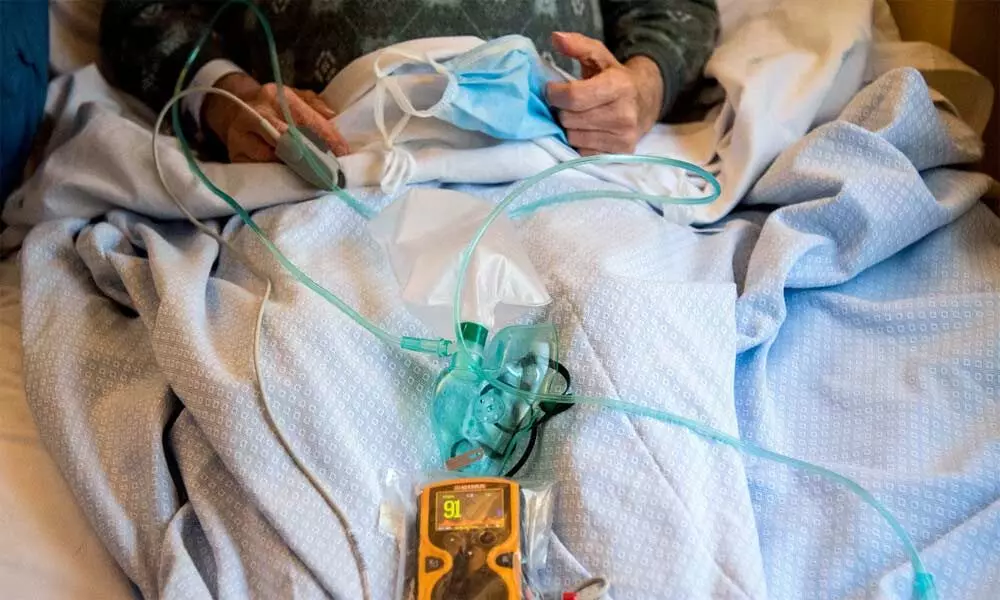Why some Covid-19 patients with low oxygen level breathe well
 Why some Covid-19 patients with low oxygen level breathe well
Why some Covid-19 patients with low oxygen level breathe wellResearchers have found possible explanations for Covid-19 patients who present with extremely low, otherwise life-threatening levels of oxygen, but no signs of difficulty in breathing.
New York: Researchers have found possible explanations for Covid-19 patients who present with extremely low, otherwise life-threatening levels of oxygen, but no signs of difficulty in breathing.
How the brain responds to the low oxygen level could be one of the factors behind the condition, known as silent hypoxemia or "happy hypoxia," said the study published in the online American Journal of Respiratory and Critical Care Medicine.
This new understanding of the condition could prevent unnecessary intubation and ventilation in patients during the current and expected second wave of coronavirus.
The study found that "several pathophysiological mechanisms account for most, if not all, cases of silent hypoxemia.
This includes the initial assessment of a patient's oxygen level with a pulse oximeter.
"While a pulse oximeter is remarkably accurate when oxygen readings are high, it markedly exaggerates the severity of low levels of oxygen when readings are low," said lead author of the study Martin Tobin, Professor, Loyola University Chicago Stritch School of Medicine in the US.
"Another factor is how the brain responds to low levels of oxygen. As oxygen levels drop in patients with Covid-19, the brain does not respond until oxygen falls to very low levels -- at which point a patient typically becomes short of breath," he said.
In addition, more than half of the patients had low levels of carbon dioxide, which may diminish the impact of an extremely low oxygen level.
It is also possible that the coronavirus is exerting a peculiar action on how the body senses low levels of oxygen which could be linked to the lack of smell, experienced by two-thirds of COVID-19 patients, according to Tobin.
While acknowledging that further research is needed, the study concludes that "features about Covid-19 that physicians find baffling become less strange when viewed in the light of long-established principles of respiratory physiology."
"This new information may help to avoid unnecessary endotracheal intubation and mechanical ventilation, which presents risks, when the ongoing and much anticipated second wave of COVID-19 emerges," said Tobin.
The study included a small group of Covid-19 patients with very low levels of oxygen without shortness of breath or dyspnea.
The term hypoxia generally refers to insufficient oxygen supply for use by the tissues.
However, there is also a condition called cerebral hypoxia which refers to a condition in which there is a decrease of oxygen supply to the brain even though there is adequate blood flow, according to the National Institute of Neurological Disorders and Stroke, an institute within the US National Institutes of Health.








